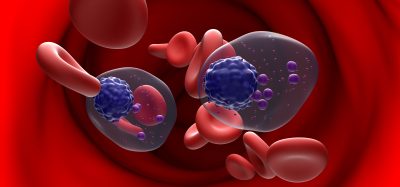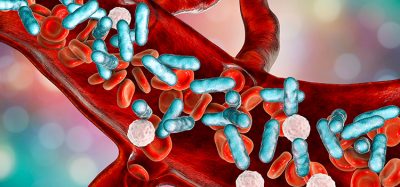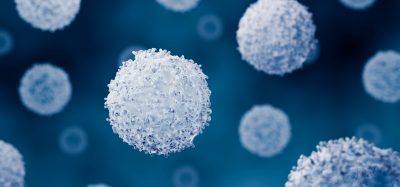New study identifies key immune cells that prevent food allergies
Posted: 21 April 2025 | Drug Target Review | No comments yet
A specialised group of immune cells in the gut has been found to prevent allergic reactions – a discovery that could lead to new treatments for allergies and autoimmune diseases.


Our immune system walks a fine line, ready to attack dangerous invaders like viruses, while ignoring harmless stimuli such as pollen, food, or friendly microbes. When that balance fails, allergies and autoimmune diseases can form. One long-standing question in immunology has been how the body learns to tolerate non-threatening substances like food proteins. Now, new research from NYU Langone Health is looking into the mechanism behind this essential function.
In a new study published in Nature, researchers have identified a special group of immune cells in the intestines, called tolerogenic dendritic cells, that play a crucial role in suppressing allergic reactions to food. The study showed that in mice without tolerogenic dendritic cells, there were fewer regulatory T cells ready to prevent inflammation caused by food or microbial antigens. Those mice also had more inflammatory T cells that caused allergies and inflammation when exposed to those antigens. These cells help teach the immune system to accept food proteins without launching an inflammatory attack. When these cells malfunction, however, allergic responses and conditions like asthma can arise.
Decoding immune tolerance
Dendritic cells are known for presenting antigens – small fragments of biological material – to T cells, effectively ‘teaching’ them which substances to attack and which to ignore. While most dendritic cells are involved in activating immune responses, the tolerogenic variety does the opposite. Instead of priming T cells to attack, they prompt the formation of regulatory T cells, which work to suppress inflammation. This enables the immune system to tolerate food proteins and friendly gut bacteria without overreacting.
This discovery adds evidence to our earlier work showing that these cells also keep the peace with the vast microbiome.
The research team found that tolerogenic dendritic cells rely on two key proteins: Retinoic Acid-Related Orphan Receptor-gamma-t (RORγt) and PR domain-containing 16 (Prdm16). These proteins are essential for protecting tolerated substances from a surge of immune cells and inflammatory proteins that are typically deployed to destroy foreign invaders. Without them, mice in the study were more prone to develop food allergies and asthma.
“This discovery adds evidence to our earlier work showing that these cells also keep the peace with the vast microbiome,” said senior author Dr Dan Littman, Professor of Molecular Immunology at NYU Grossman School of Medicine and a Howard Hughes Medical Institute Investigator. “They may be important for preventing autoimmune conditions like Crohn’s disease as well.”
Human relevance and future possibilities
The team found human equivalents of these tolerogenic dendritic cells by analysing intestinal tissue and genetic data. Although the abundance and full range of their functions in the human body are still unclear, their discovery could have important clinical implications.
“If further experiments prove successful, our findings could lead to innovative ways to treat food allergies,” said Littman. “For example, if someone has a peanut allergy, perhaps we can use tolerogenic dendritic cells to help create more regulatory T cells to suppress an allergic response to peanut molecules.”
What’s next?
Researchers are now aiming to discover how these special dendritic cells develop, what signals guide their behaviour, and whether they play roles in other forms of immune tolerance beyond the intestines. These findings could contribute to the development of new treatments for food allergies, as well as autoimmune and inflammatory diseases.
The findings represent a significant step toward understanding, and potentially treating, some of the most complex immune disorders in the world.
Related topics
Autoimmune disease, Disease Research, Immunology, T cells, Translational Science
Related conditions
Asthma, Food allergies
Related organisations
NYU Langone Health








